Slam poet and chemistry teacher Jess Melville-Richards shares what she thinks makes a good role model and who inspires her
-
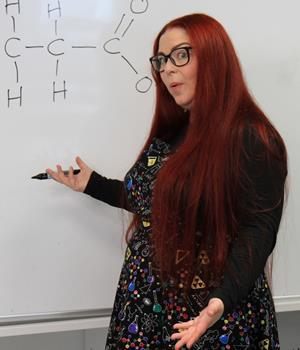
Jess Melville-Richards has been teaching for 15 years and currently teaches level 3 chemistry at Coleg Menai Llangefni on Ynys Môn. She mainly teaches BTEC applied science (biomedical science) extended diploma post-16, but also teaches chemistry to adults on the biosciences access to higher education diploma. She is a health and safety union rep for the University and College Union, an RSC local section committee member for North Wales and is currently studying for a national master’s in education, specialising in additional learning needs. In short, she likes to keep busy.
Image source: © Alex Reeve
Jess Melville-Richards has been teaching for 15 years and currently teaches level 3 chemistry at Coleg Menai Llangefni on Ynys Môn. She mainly teaches BTEC applied science (biomedical science) extended diploma post-16, but also teaches chemistry to adults on the biosciences access to higher education diploma. She is a health and safety union rep for UCU, an RSC North Wales local section committee member and is currently studying for a national master’s in education, specialising in additional learning needs. In short, she likes to keep busy.
What’s your favourite teaching hack you’d like to share?
I like to enhance my teaching with AI tools. AI technology is revolutionising education, and while we must remain mindful of how we use it, there is no doubt that AI can help provide stimulating learning experiences. I use a tool called Brisk to create interactive text chats with simulated historical figures, like Marie Curie, and I use Google NotebookLM to create engaging podcasts based on source documents that I choose myself. I have also recently discovered Napkin, which is an amazing AI tool for transforming text into visuals. I’m still getting to grips with it, but it looks like it could be transformative for students with additional learning needs. You can use all these tools can to turn abstract chemical concepts into tangible experiences for students, as well as cutting down teachers’ workloads. What’s not to like?
Get involved
Want to suggest a question? Want to be the next teacher, technician or trainer in this series? Email education@rsc.org today.
Describe an embarrassing moment you’d rather not relive in your classroom or teaching life …
A few years ago in my access to higher education class I had an uncontrollable fit of laughter triggered by something I said that didn’t come out quite right (it wasn’t even that funny). The issue was exacerbated by a student on the front bench who was also struggling to keep a straight face, and every time I looked at them, I was off again. I had tears streaming down my face and had to step out of the lab more than once to pull myself together.
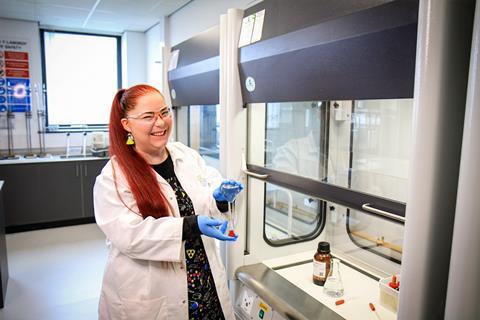
What’s on your bookshelf?
Apart from Education in Chemistry magazine, I read New Scientist to keep abreast of news and developments. I’m also a big fan of the Miller’s antiques handbook and price guide series as I used to run a vintage shop, and I’m still a big collector of vintage and retro clothing and collectibles from the 1960s and 70s. I’ve recently been reading excerpts from The Joy of Science by Jim Al-Khalili to my students — my partner bought me a signed copy after we saw Jim giving an amazing talk at a festival.
How do you relax?
Every Saturday night I watch a movie with my partner, son and parents, with obligatory popcorn and post-film analysis. I also write and perform poetry — last year I won a poetry slam, and during the Covid-19 lockdown I wrote a sciku (science haiku) every day for half a term and shared them with my students. The ultimate way for me to relax, though, is spending time with my beautiful cat, Pi.
What do you wear to school? Do you have a favourite outfit for teaching?
My style would best be described as flamboyant. My dresses are colourful and invariably patterned with playful prints such as dinosaurs, bees, rainbows and cats, and students like to check that my earrings match my dress (they always do). My favourite outfit for teaching would be one of my numerous science-themed dresses, combined with a pair of chemistry-themed earrings, naturally.
Who’s your hero?
My hero is the Antarctic explorer Ernest Shackleton. He was not perfect, but I believe there is much to learn from him in terms of leadership, optimism and perseverance, specifically his extraordinary feats on his voyage on the Endurance.
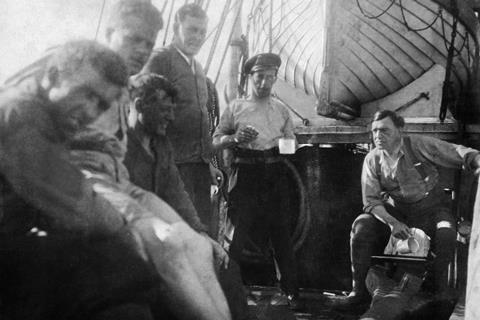
Do you have a teaching resource you keep coming back to?
I love the infographics from Compound Interest (rsc.li/42cMEpq). Students find them really engaging, and there are hundreds of them. There are some quirky ones like ‘The Plastic Anatomy of a Barbie Doll’ (great as an introduction to polymers) and ‘The Periodic Table of Element Scrabble Scores’ (zirconium, rutherfordium, and praseodymium score highest, but you may struggle to play them in an actual game).
I love the infographics from Compound Interest. Students find them really engaging, and there are hundreds of them. There are some quirky ones like The plastic anatomy of a Barbie doll (great as an introduction to polymers) and The periodic table of element scrabble scores (zirconium, rutherfordium and praseodymium score highest, but you may struggle to play them in an actual game).
Are you involved in any extracurricular activities at school?
With the support of our science technician, myself and a colleague have started a weekly science skills club. The initial purpose was to prepare level 3 students (BTEC applied science and A-level sciences) for Skills Competition Wales (rsc.li/3FOHIQ1), but the club is also open to those who choose not to compete and we make it as hands-on as possible. I’m a big film fan, so I sometimes hold an impromptu film club with my students.
With the support of our science technician, myself and a colleague have started a weekly science skills club. The initial purpose was to prepare level 3 students (BTEC applied science and A-level sciences) for Skills Competition Wales, but the club is also open to those who choose not to compete and we make it as hands-on as possible. I’m a big film fan, so I sometimes hold an impromptu film club with my students.
Imagine you can only share one piece of advice with your fellow teachers, what would you say?
My best advice to anyone in any situation would be to just be yourself. I think students appreciate the authenticity of this and I don’t think there’s any harm in students seeing that you are a human being with flaws and vulnerabilities. If you can show them that it is possible to overcome your shortcomings or fears, then you will be a better role model in my opinion.
Technicians ask teachers
In the last Meet the … article, we asked Andrew Symonds to suggest a question for the next interviewee. He asked:
In the last Meet the … article, we asked Andrew Symonds to suggest a question for the next interviewee. He asked:
What do you love most about your job?
This is a simple one to answer: I love seeing those lightbulb moments on the faces of my students when everything clicks into place and they suddenly ‘get it’. The beauty of these moments is that they don’t happen every day. But when they do, they are a huge confidence boost to the individuals involved, especially those who never thought they were any good. They are a big deal to me too. I live for these moments.
We asked Jess for a question for the next interviewee, and she suggested:
What item(s) can always be found on your desk and why? (For me, it has to be a jar of science-themed stickers, because you are never too old for sticker rewards).
Emily Kelly
My best advice to anyone in any situation would be to just be yourself





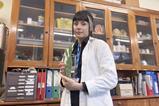
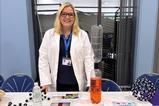




No comments yet